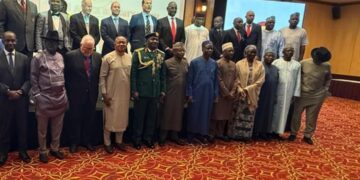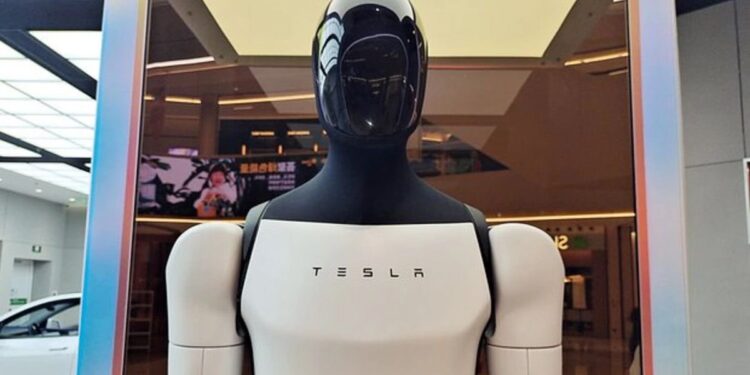While global attention remains fixed on traditional security concerns, a silent revolution in robotics and artificial intelligence is emerging that could redefine national power, reshape global labour markets, and trigger strategic realignments across continents.
The breakthrough in autonomous humanoid systems, exemplified by platforms such as Tesla’s Optimus, signals not just industrial automation but a major shift in the foundations of national strength, economic competitiveness, and military capability.
Many observers focus on convenience and productivity. However, the implications for defence, sovereignty, workforce stability, and geopolitical balance are profound and immediate.
A Disruptive Shift: Labour Becomes Software
If humanoid systems like Optimus deliver on their promise, labour — the backbone of global productivity — becomes:
-
Fixed cost, not variable
-
Scalable on demand
-
Free of pension/HR burdens
-
Immune to fatigue, illness, or migration constraints
This would be the most disruptive economic transformation since the Industrial Revolution.
Factories could be reshored to Western countries; consumer goods like clothes, household items, and even electronics could again be manufactured at home bases in the US and Europe, reversing decades of globalization.
For Nigeria and Africa, often positioned as emerging labour markets, this demands urgent rethinking.
Strategic Defence Perspective: A Robot-Enabled Military Era
The defence implications are staggering:
-
Robotized infantry and logistics units
-
Automated surveillance, maintenance, and base operations
-
Unmanned combat support and rapid manufacturing of replacement systems
-
Industrial-scale production of military kit domestically
-
Lower wartime manpower vulnerability
Nations with robotic industrial depth will not only dominate economically — they will outpace rivals militarily through:
-
Faster mobilisation
-
Cheaper force projection
-
Self-sufficient manufacturing pipelines
-
Resilience against sanctions and labour disruptions
African nations cannot afford to be spectators.
Geopolitical Shockwaves: Migration & Workforce Dynamics
Waves of global migration historically filled labour gaps in the West — healthcare, logistics, construction, agriculture. Robotics threatens to neutralise that need.
This means:
-
Reduced demand for foreign labour
-
Declining migration pathways
-
Collapse of “Japa”-style economic escape valves
-
Acceleration of local job displacement risks
For Nigeria and similar economies, the socio-economic and security consequences could be severe if unmanaged:
-
Youth unemployment spikes
-
Tech-driven class divide
-
Internal instability risks
-
Economic stagnation if skills do not evolve
National Security Implications for Nigeria
| Threat | Implication |
|---|---|
| Tech divide widens | Strategic dependency & sovereign vulnerability |
| Youth unemployment | Recruitment pool for insurgency/criminal groups |
| Reduced migration | Higher domestic pressure on security institutions |
| Automation | Decline in labour-driven economic sectors |
| Robotic militaries | Conventional defence capacity becomes obsolete |
This is not hypothetical. It is a security planning horizon 5-10 years, not 50.
What Must Nigeria & Africa Do? Strategic Action Points
National Robotics & AI Defence Strategy
Move from consumer to developer nation — particularly for defence and industrial automation.
Military-Focused AI & Mechatronics Training
Establish robotics training pipelines in NDA, Defence College, and technical universities.
Dual-Use Innovation Hubs
Encourage military-civil collaboration in autonomous systems, similar to US DARPA & China’s PLA tech ecosystem.
Prepare Workforce Transition Policies
Mass-upskill youth for AI, robotics maintenance, software, and cyber operations.
Establish Industrial Security Zones
Robot-powered industrial bases for:
-
Defence manufacturing
-
Drone fabrication
-
Surveillance infrastructure
-
Local spare-parts ecosystems
Update National Security Doctrine
Incorporate AI and automation as core components of:
-
National defence strategy
-
Economic security planning
-
Internal stability and counter-radicalisation efforts
DefenceTimesNG.africa View
The question is no longer whether robotic intelligence will reshape global security but whether Nigeria will prepare or be caught unready.
Future conflict, manufacturing, and geopolitical influence will hinge not on manpower but on machine power, compute power, and national innovation capability.
The nations that master autonomous systems will lead the world. Those who delay will negotiate their sovereignty from a position of dependence.
Africa must not enter the AI-robotics age as a labour supplier to a world that no longer requires labour.
The time to prepare is now.
Author: Ikerionwu Ifeanyi Fredrick
An award-winning IT practitioner specialising in Cybersecurity and DevOps, advancing secure automation, cloud innovation, and mission-critical technology delivery within Nigeria’s defence and national security ecosystem.







